Excellent stealth game Spirited Thief was so sneaky it came out on Steam and nobody noticed
Spirited Thief makes you feel like a heist-planning master criminal.
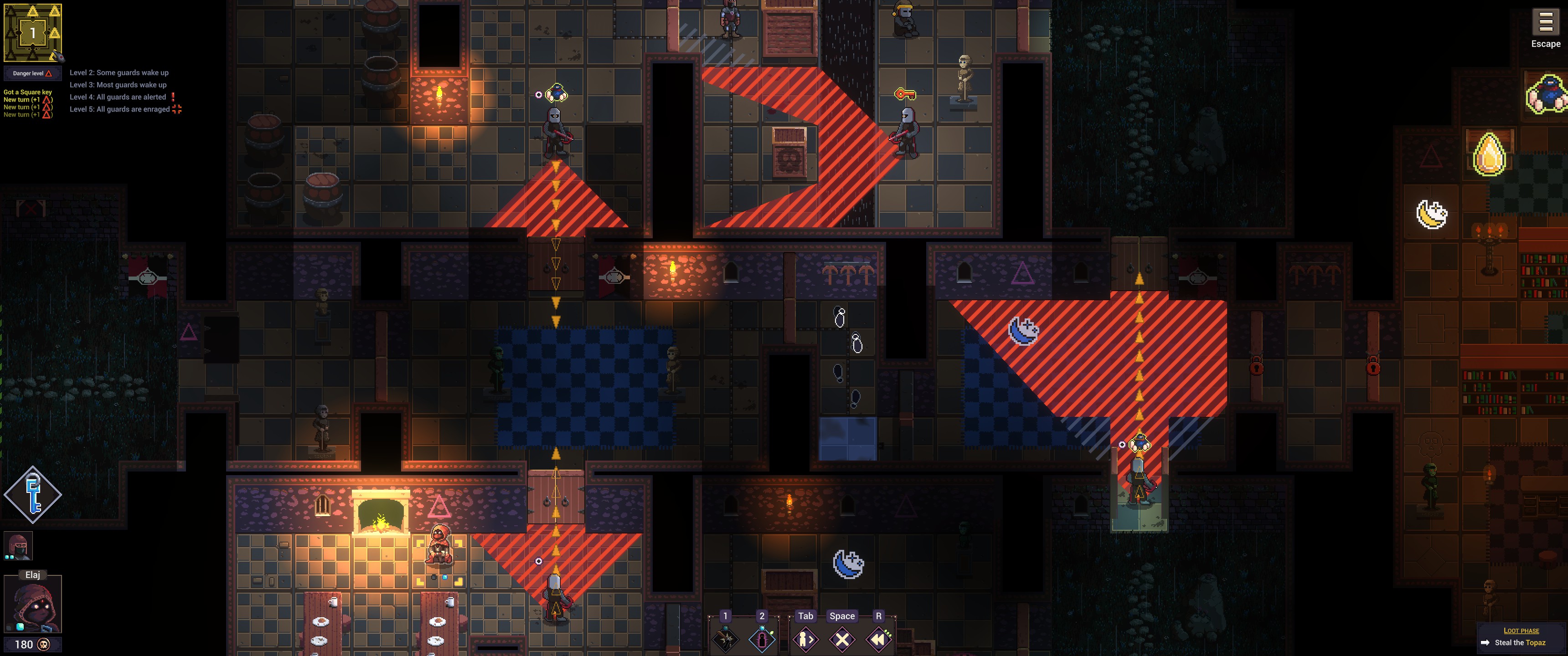
It feels oddly fitting that a stealth game would sneak out almost completely unseen in the midst of this year’s deluge of big game releases. This one is especially unassuming at first glance, with cute but slightly stiff sprites and a functional but bland UI, but it would be a mistake to overlook Spirited Thief. While it may draw on a rich history of stealth and tactics games (from the original Thief to Shadow Tactics and beyond), it also has fresh ideas about preparing for heists and planning out stealth missions.
Spirited Thief is a turn-based 2D tactical sneaker, probably closest in style to Klei’s excellent Invisible, Inc., but with bespoke, hand-crafted missions instead of procedural labyrinths to skulk around. It’s set in a gaslamp fantasy world pretty similar to Thief, and captures some of the same tone—the familiar sense that as skilled as you are, you’re still just a small-time larcenist pickpocketing and looting your way out of your league.
But unlike in Thief, here you’re not alone.
Most missions give you a small squad of sneaky folks, each with their own assortment of gadgetry to get them out of (or into) trouble. But what really defines Spirited Thief for me is Trin, the titular spirit. Trin is a ghost, incorporeal and capable of teleporting around to anywhere in line-of-sight or memory, and they take center-stage at the start of most missions. Before any heist begins, you get to control Trin on a scouting operation. While Trin can be seen by guards (and will teleport away to safety if spotted), you only risk slowing down your recon—it’s relatively low stakes. At least initially.
With no map of the mission area to begin with and only a rough description of what you’re looking for, the first part of any job is mapping out the space, identifying key guard routes, figuring out which switches operate what doors, and who’s carrying what keys. Trin can't flip switches, but what you can do during recon is monkey around with magical security measures. Those are within the purview of a purloining spirit. You really get a sense of the mission space, the threats and how they’re moving around, and Trin can tag a limited number of guards to make them always visible through the fog of war, giving you fewer patrol routes to commit to memory.
You will have to remember some details for yourself though, because once Trin is done with their scouting, they get to sit (hover?) on the sidelines while your squad of living thieves tackle the job, and any magical paths opened or closed by Trin stay that way until the mission’s end. Once the mission begins properly, every member of your squad can move twice each turn and interact with as many things as they’d like, including pickpocketing, looting chests, flipping switches or using their emergency gadgets, giving you a lot of freedom each turn.
The game kindly shows you the vision cones for all wandering guards, indicators for where they’ll walk or face next turn, and you can also hear footsteps in adjacent rooms, if there are unseen foes pacing around. It’s empowering, but required because you are very much outnumbered and outgunned with little room for error. Everyone dies in one hit, and losing anyone in the squad is an instant mission failure, so every move needs to be carefully considered, making for that constant tension that all good stealth games hinge on.
Keep up to date with the most important stories and the best deals, as picked by the PC Gamer team.
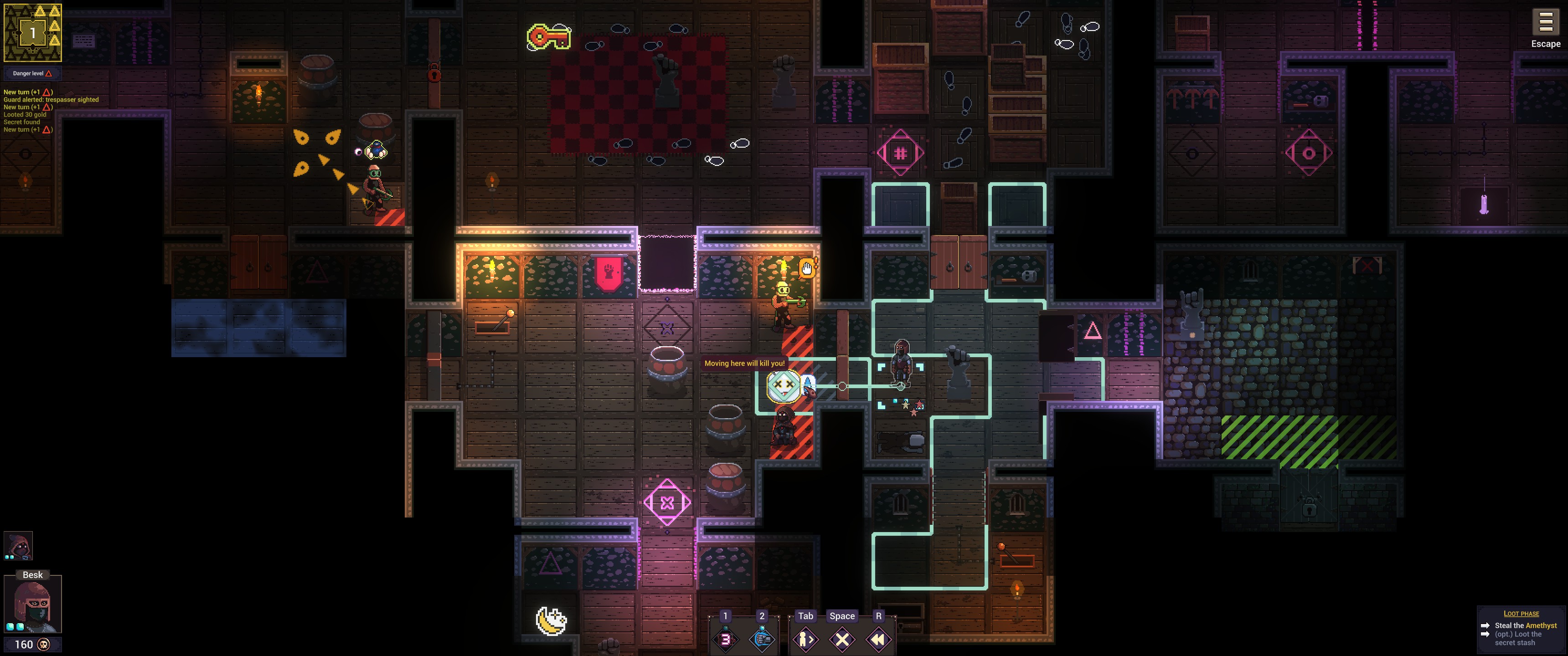
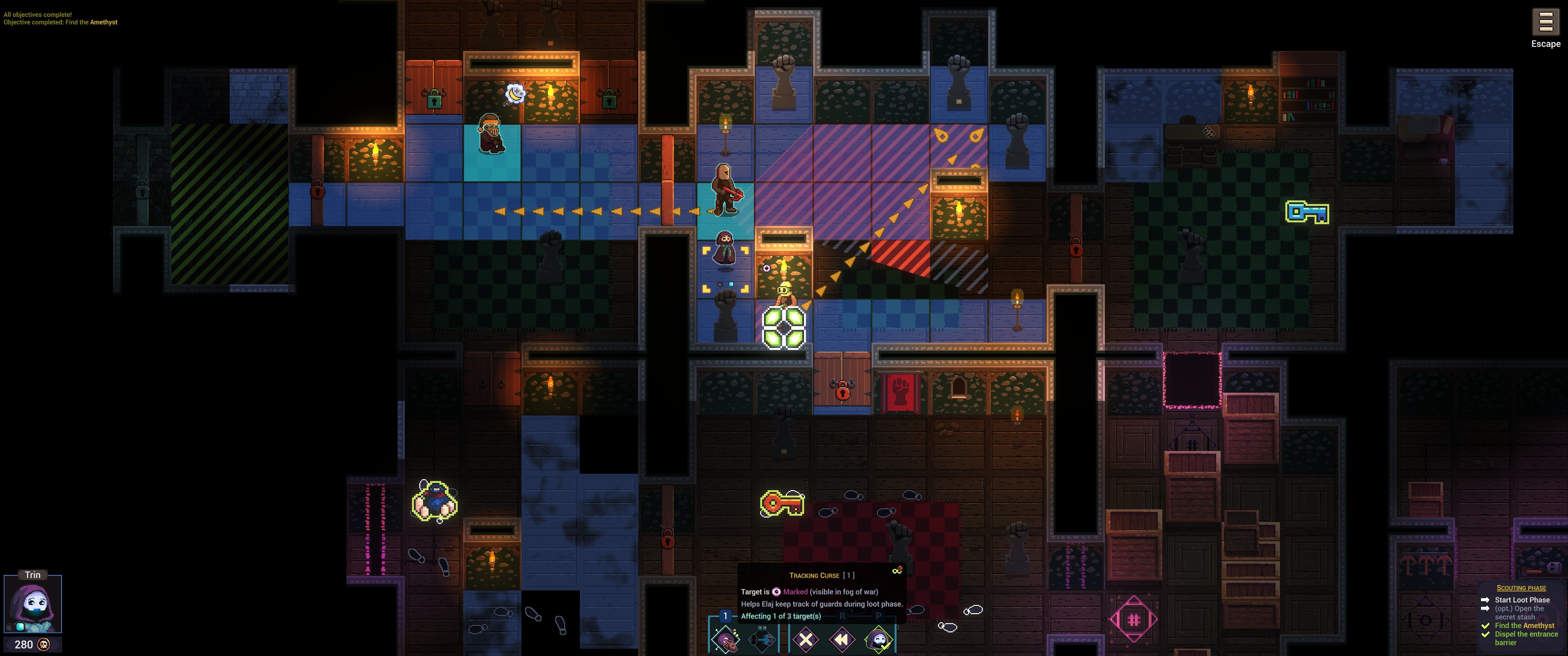
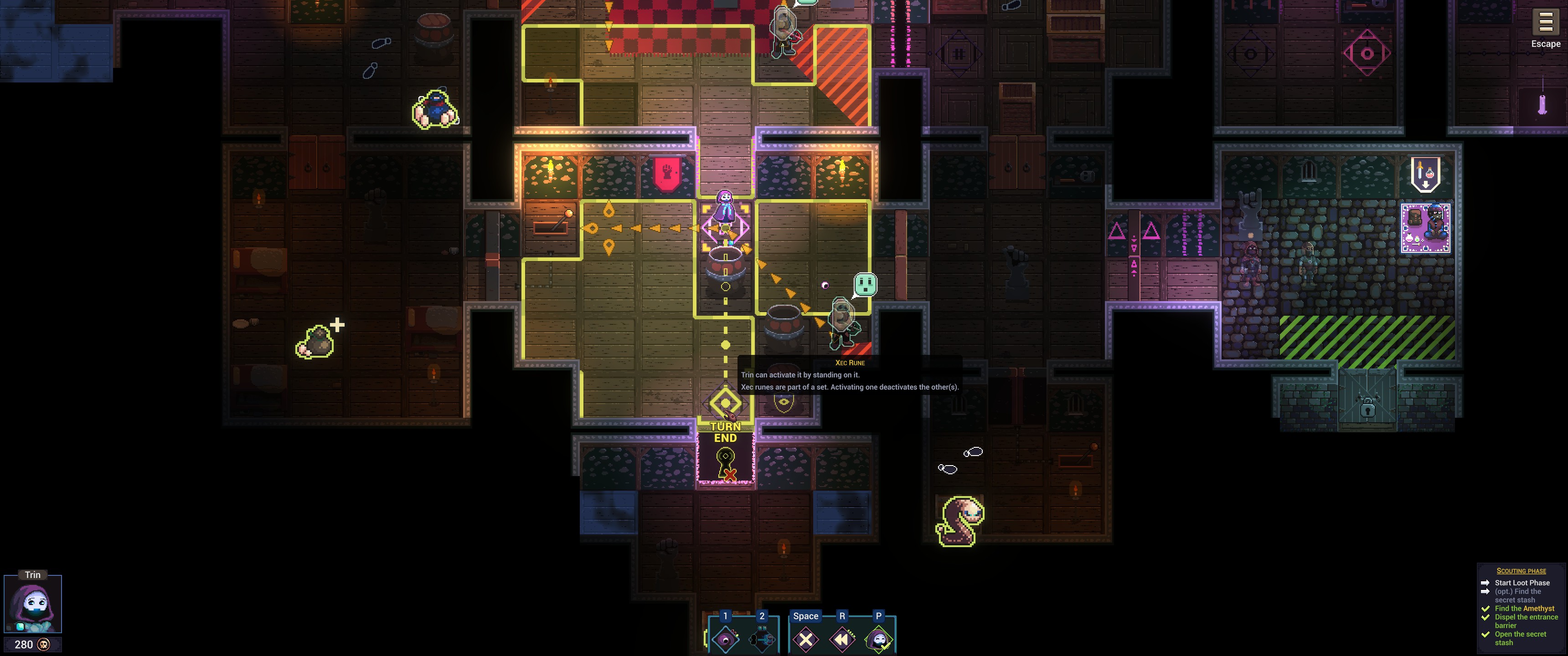
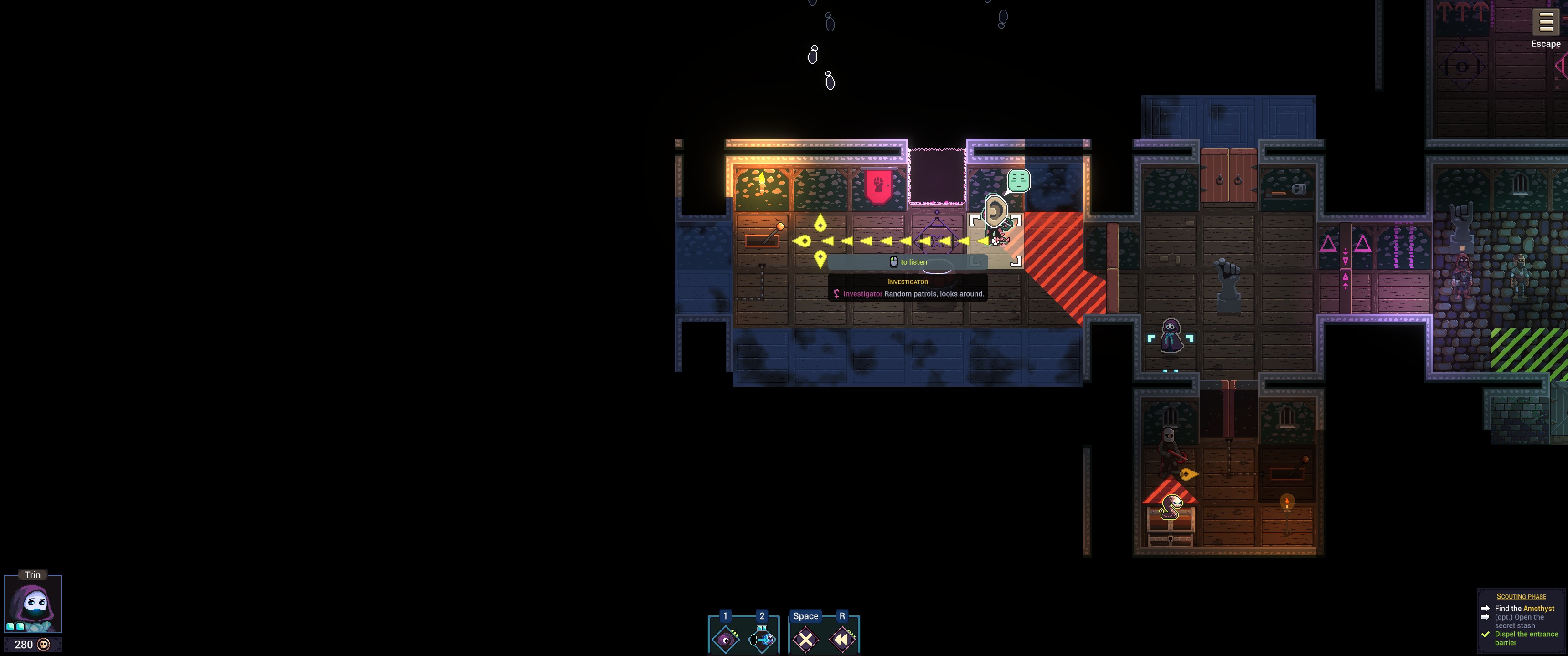
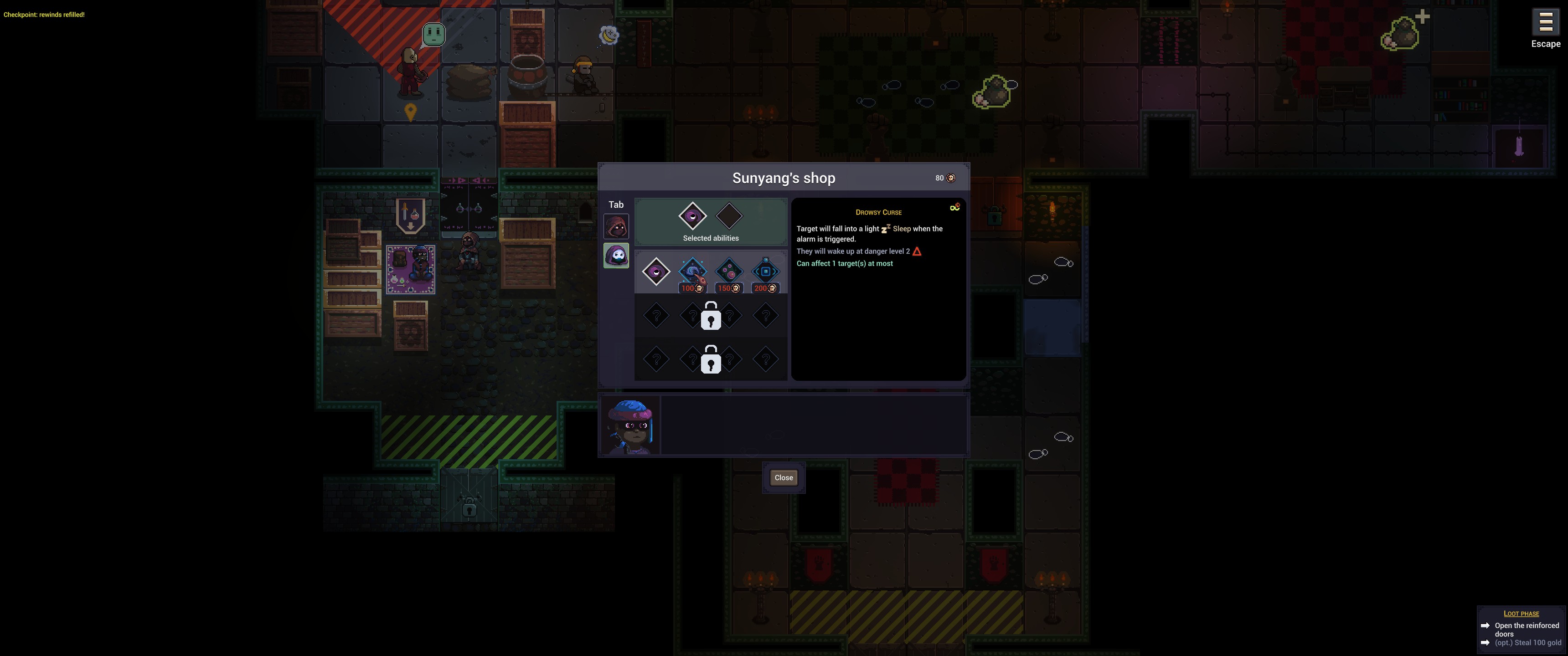
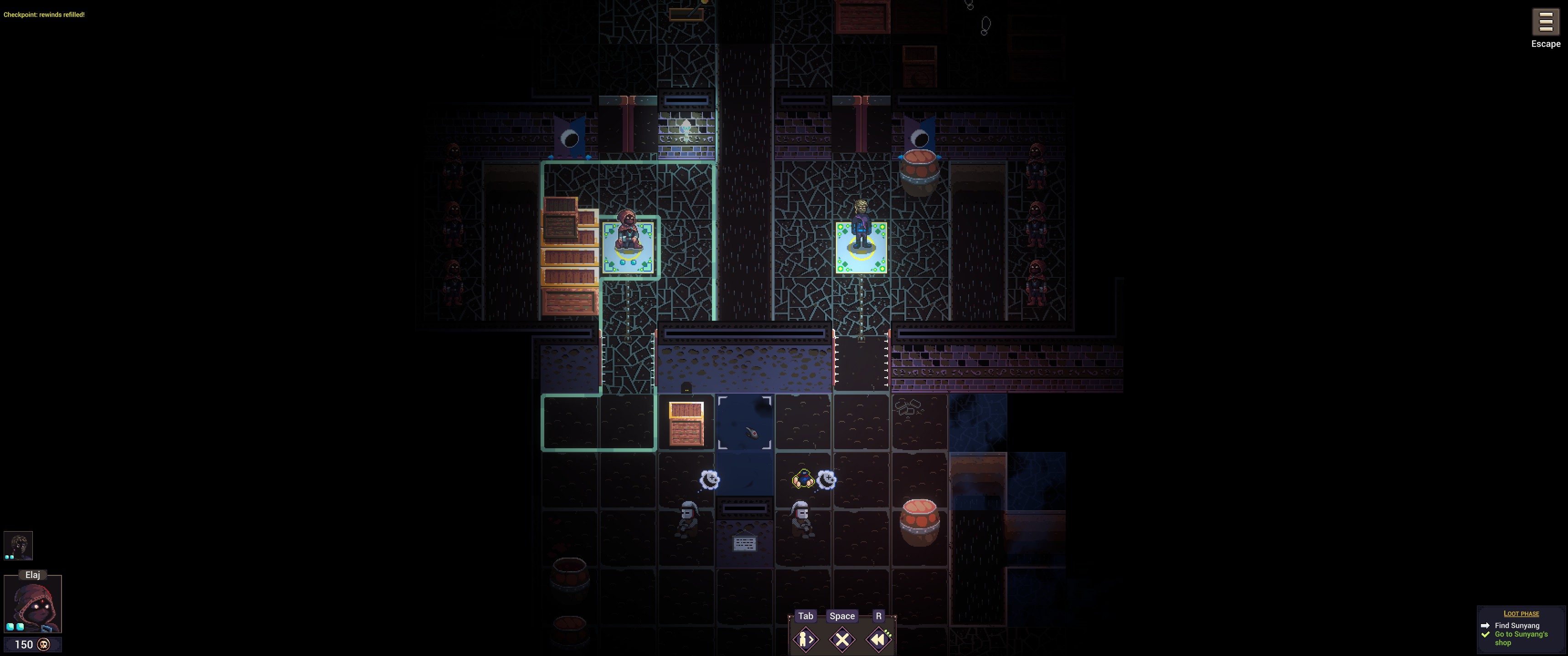
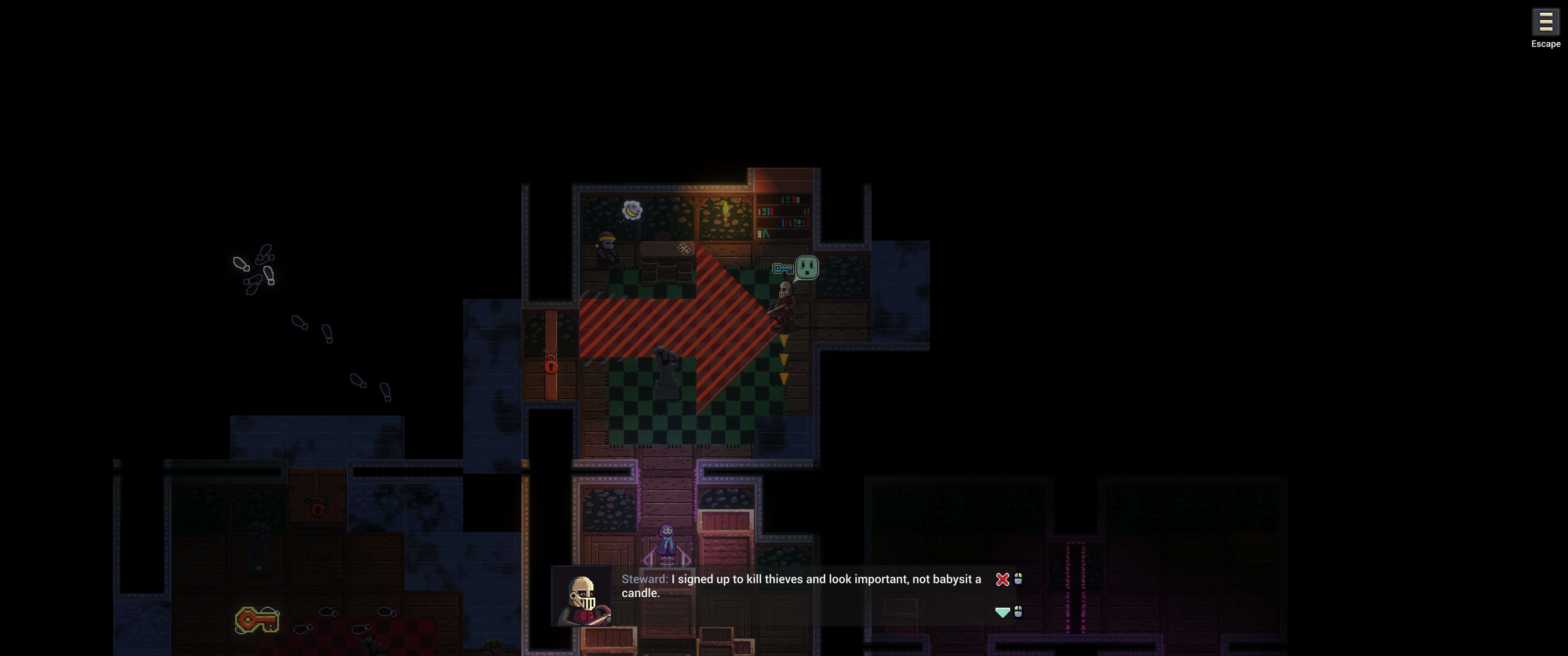

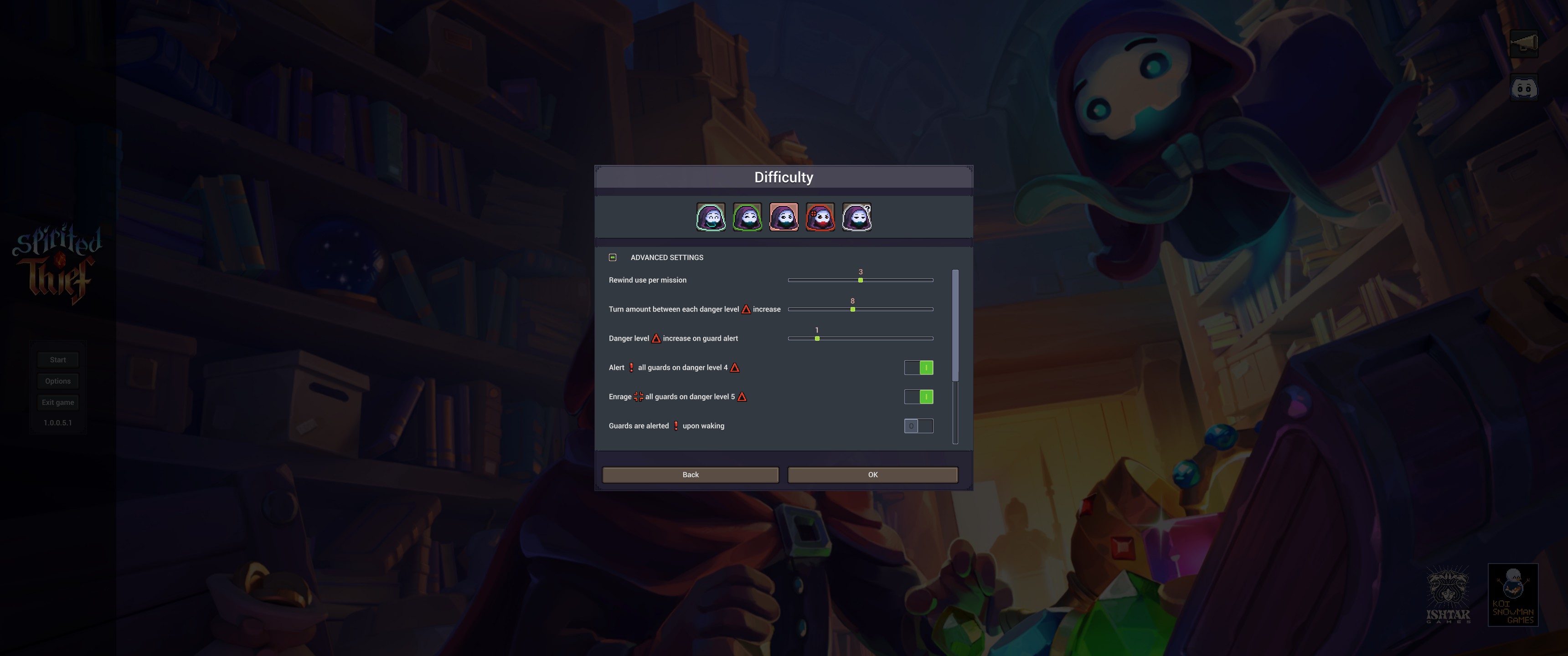
There’s also mounting time pressure. It’s a bit of a gamey contrivance, but most missions require you to enter through a door that triggers a timed alarm that progressively gets louder as the mission wears on. Take too many turns and any sleeping guards will start waking up and patrolling. Leave it longer and guards will become alerted, leaving patrol routes to unpredictably scour the building. Really push your luck and the guards become enraged, meaning instant death to any thief they spot.
It's nothing that smart play can’t work around, but there’s a real sense of escalating urgency, making that early planning phase all the more important. You want to pick your targets, get in and get out before things get too spicy, and that is a very compelling core for a stealth game.
It’s a lot to mentally juggle, and several times I’ve found myself deep in what I thought was the perfect infiltration, pickpocketing money and keys from everyone in my path, confident that nothing could go wrong—only for a guard I’d completely forgotten to nonchalantly walk into the room, forcing some costly improvisation. Perhaps use my one and only invisibility potion to close the gap and deliver a blackjack to the noggin? Maybe just bug out entirely and find another approach, or (in absolutely doomed situations) spend one of my precious ‘undo turn’ tokens and try the room again with foresight?
Spirited Thief isn’t a huge game, with only around eighteen missions, but each one I’ve played so far feels distinct. With multiple enemy factions, a good range of enemy units with their own gimmicks and plenty of problems both tactical and puzzly, there’s a lot going on here. Past levels are decently replayable too, with lots of optional objectives to shoot for, and with highly customizable difficulty levels.
I’d love to see a level editor released, as there’s a lot of potential here in Spirited Thief’s systems, but as it stands, this is an exciting, sneaky brainteaser that deserves to spend a little less time lurking in the shadows.

The product of a wasted youth, wasted prime and getting into wasted middle age, Dominic Tarason is a freelance writer, occasional indie PR guy and professional techno-hermit seen in many strange corners of the internet and seldom in reality. Based deep in the Welsh hinterlands where no food delivery dares to go, videogames provide a gritty, realistic escape from the idyllic views and fresh country air. If you're looking for something new and potentially very weird to play, feel free to poke him on Bluesky. He's almost sociable, most of the time.

